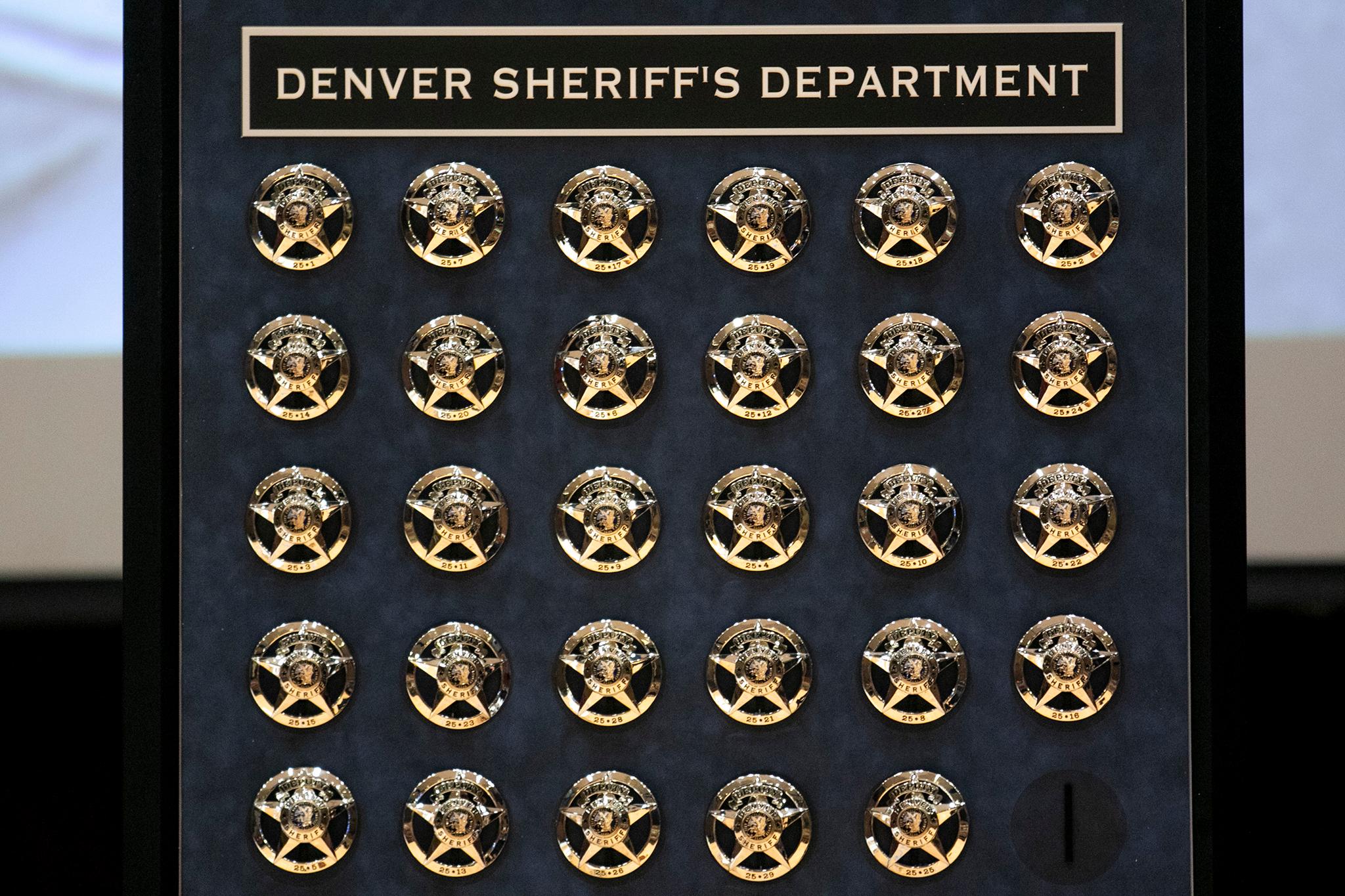By Sadie Gurman, Associated Press
DENVER (AP) — Colorado Gov. John Hickenlooper listened as an investigator offered details about the murder of one of his cabinet members, a corrections chief he hired to reform the state's prisons who had also become a close friend.
As the trooper flashed photo after photo on a projection screen, a wave of nausea washed over the governor. It was a mugshot of the killer he immediately recognized. He was the son of another close friend.
Three years after that tense briefing in his office, Hickenlooper has said little publicly about the March 2013 assassination of prisons director Tom Clements by a mistakenly paroled member of a white supremacist prison gang, even as questions linger.
In his candid, newly released autobiography, Hickenlooper, a dark horse to be the Democratic vice presidential nominee, recalled the first time he realized he was the one who led the murderous son of one close friend to the doorstep of another.
"Here, now, were ... two of my friends, intersecting in this horror," Hickenlooper wrote in his autobiography.
Hickenlooper met quietly this month with prosecutors and sheriff's officials, who told him they have begun closing the case.
The killer died in a shootout with lawmen in Texas, but the case remains dogged by speculation that he didn't act alone. That was revived by documents recently released by Texas authorities showing they believed, at least for a time, that Evan Ebel was doing the bidding of higher-ups in his white supremacist prison gang when he shot Clements dead at his front door.
Yet the investigators in charge of the case for the past year-and-a-half insist it was the work of a lone gunman who is dead.
Ebel, 28, was the son of Jack Ebel, a suburban Denver attorney who worked with Hickenlooper at an oil company when Hickenlooper was a geologist. The two stayed close as Hickenlooper went on to become a brewpub owner, and then Denver's mayor and Colorado's governor. And Hickenlooper has said he knew Jack Ebel had been troubled by his son's time in prison.
Hickenlooper had just given a eulogy for Clements when he went to dinner with Maximillian Potter, a Denver reporter who became Hickenlooper's media adviser and helped him write the memoir.
"He looked like a ghost. He looked incredibly hurt, and he looked wounded," Potter told The Associated Press. Over the years, "he felt guilty that, because of him, more or less, Tom is in town. If Tom's not the head of the Department of Corrections, Tom doesn't become his friend, and Tom doesn't get killed."
Hickenlooper declined to comment for this story, as did Clements' widow Lisa. Jack Ebel could not immediately be reached.
"I can't talk about this," Hickenlooper told reporters after a recent news conference, his voice rising.
"I know too many things, and they can be misconstrued in a million different ways."
Jack Ebel testified before the Colorado Legislature in 2011 that he believed solitary was destroying his son's psyche. When Hickenlooper was interviewing Clements, then a Missouri corrections official, for the top prisons job in Colorado, he mentioned his friend's son as an example of why the prison system needed reform.
Once Clements came to Colorado, he eased the use of solitary confinement and tried to make it easier for people housed there to re-enter society.
No one has officially revealed Ebel's motive for executing Clements. First, he killed Nathan Leon, a father of three who was working as a pizza delivery driver to make extra money. Two days later, wearing Leon's Domino's uniform, Ebel shot Clements dead when he answered the front door of his home.
At the time of the murders, Evan Ebel should still have been in prison.
Already there for a series of convictions, he was sentenced to an additional four years for assaulting a prison officer. But a clerical error made it unclear the sentences were supposed to be served back-to-back, and officials treated the sentences as simultaneous, allowing Ebel to walk out of prison in January 2013. He was on parole just two months before he slipped out of his ankle bracelet monitor and set out to kill the prisons chief.
After killing Clements, Ebel fled to Texas in his black 1991 Cadillac DeVille, in which authorities later found lye and pipe bomb-making materials, a book about white supremacy, directions to Clements' home and the names of other Colorado officials.
Adding a new layer of confusion, the sheriff's officials who oversaw the probe at its outset resigned and were indicted in May on extortion charges. The lead investigator overseeing the Clements case was among those charged.
El Paso County Sheriff Bill Elder, who is currently in charge of the investigation, said he plans to close it. Elder dismissed the 77-page report released by the Texas Department of Public Safety, written by one of its rangers, saying it was taken in the confusing days after the killing, and that years of further investigation found no evidence of a gang conspiracy.
"We have had countless people looking at this case," Elder told The Associated Press prior to meeting with Hickenlooper. "If there was physical evidence of a conspiracy we would be on that like white on rice."
Elder said that when he took office in January 2015, he had a team of investigators go over every lead and every piece of evidence.
A single investigator remains assigned to the case.
Hickenlooper has not said whether he has doubts about the handling of the investigation that would prompt him to use his authority to appoint the attorney general as a special prosecutor, a rare move.
"All he could do is run the state as he normally would and let the investigation play out," Potter said. "And privately grieve for one of his closest friends, and for a father who lost a son."
Copyright 2016 The Associated Press. All rights reserved. This material may not be published, broadcast, rewritten or redistributed.













